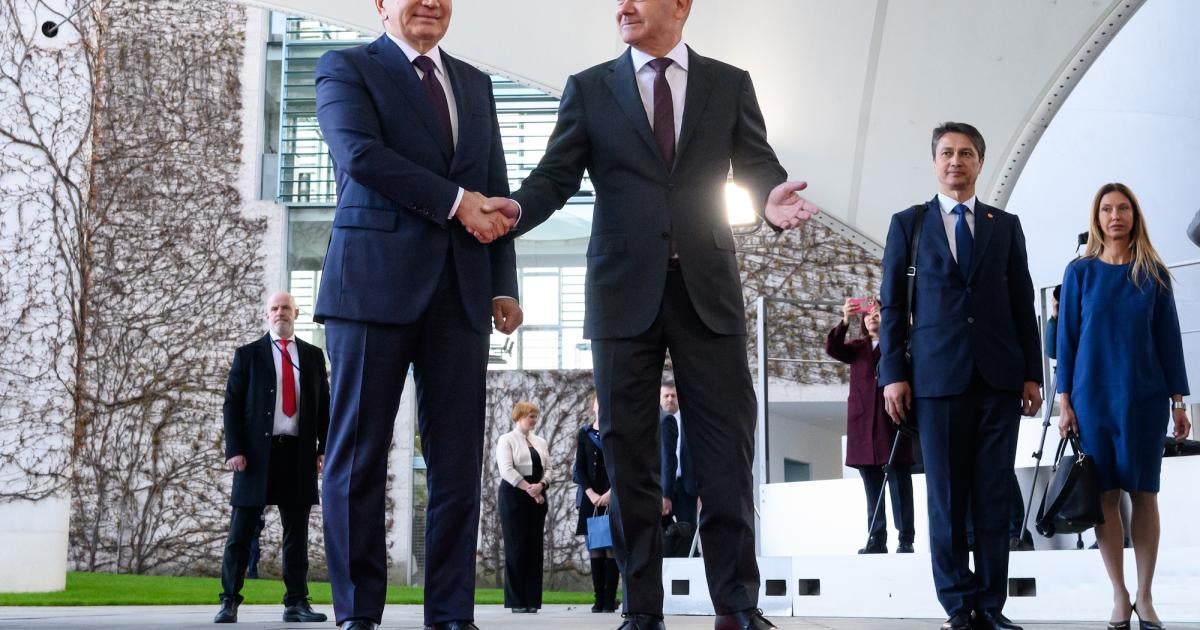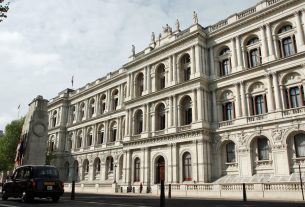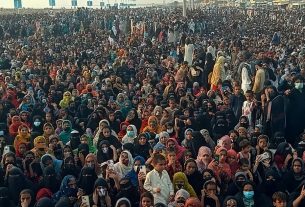German Chancellor Olaf Scholz has called for peace in Ukraine during his first direct phone call with Russian President Vladimir Putin in more than two years. The conversation, which took place on November 14, 2024, comes amid continued international concerns over Russia’s ongoing military aggression in Ukraine and escalating global tensions. Scholz emphasized the urgent need for a diplomatic solution to the conflict and reiterated Germany’s commitment to supporting Ukraine’s sovereignty.
The phone call, which was initiated by Scholz, marks a significant diplomatic moment as relations between the West and Russia have been severely strained since the Russian invasion of Ukraine in February 2022. Scholz and Putin last spoke directly in February 2022, just days before the invasion, and the two leaders have not communicated since. Their renewed dialogue reflects growing concerns about the war’s continued devastation and the potential for a broader conflict.
Details of the Phone Call:
According to a statement from the German government, the conversation between Chancellor Scholz and President Putin lasted for about 90 minutes. The discussions focused on several key issues, with Ukraine’s territorial integrity and the humanitarian crisis at the forefront.
Chancellor Scholz reportedly urged Putin to deescalate the conflict and halt military actions, stressing the importance of a negotiated settlement that respects Ukraine’s sovereignty and territorial integrity. Scholz also expressed his concern about the devastating effects the war continues to have on Ukrainian civilians, emphasizing the importance of addressing the humanitarian crisis caused by Russia’s invasion.
The German chancellor made it clear that Germany would continue to support Ukraine with military and humanitarian aid, including providing weapons and funding to assist in the country’s defense. Scholz also mentioned the ongoing role of international diplomacy and the necessity for continued pressure on Moscow through sanctions until a meaningful peace process is put into place.
In response, President Putin reportedly reaffirmed Russia’s position that Ukraine’s NATO aspirations and the West’s involvement in the conflict were among the key issues driving the war. Putin’s spokesperson, Dmitry Peskov, confirmed that the Russian president highlighted Moscow’s desire for Ukraine to remain neutral and non-aligned in military terms.
Diplomatic Context:
This phone call marks a rare moment of engagement between a key leader of the European Union and the Russian president, as EU-Russia relations have been severely strained since the invasion. Scholz’s outreach underscores a shift in European diplomatic strategy, where several European leaders have increasingly called for dialogue with Russia to avoid further escalation. However, most EU countries, led by Germany, have also committed to providing sustained support to Ukraine, including military aid and sanctions on Russia.
The timing of the conversation is critical, as the Russian military has suffered significant setbacks in the war, including the recapture of territory in the south and east of Ukraine by Ukrainian forces. As winter approaches, both Ukraine and Russia are facing mounting logistical challenges. There are also concerns about Russia’s increasingly aggressive rhetoric and its use of nuclear threats in the face of a prolonged conflict.
Scholz has long advocated for diplomacy, but Germany’s position on the conflict has been complicated by its historical ties to Russia and its role as a major EU power. Germany’s support for Ukraine has included arms supplies, economic aid, and sanctions against Russian elites. However, Scholz and German officials have faced internal and external pressure to balance diplomacy with continued support for Ukraine, a key partner in Europe’s security framework.
The Broader Geopolitical Impact:
This phone call comes amid growing frustration among Western leaders about the lack of significant progress in ending the war. Despite the military assistance provided to Ukraine by the U.S., EU, and NATO, Russia’s war machine remains a potent force, and the situation has become increasingly entrenched, with little diplomatic movement toward a lasting peace agreement.
Several NATO leaders have also called for greater engagement with Russia to find a path to peace. Scholz’s move may be seen as part of broader Western efforts to reinstate a more structured dialogue with Moscow, though Western officials remain steadfast in their support for Ukraine’s right to defend itself and its sovereignty.
However, the U.S. and NATO have maintained that they will not pressure Ukraine into any peace agreement that would undermine its territorial integrity or sovereignty. The rhetoric coming from the Russian government has remained aggressive, particularly with respect to Ukraine’s desire to join NATO, which Moscow considers a red line.
The geopolitical ramifications of this call are still unfolding, but some experts believe it could open a new avenue for negotiations, though much will depend on whether both sides are willing to make concessions. Scholz’s call for peace could serve as a precursor to further discussions, possibly with the involvement of other European leaders or international mediators.
What Happens Next?
While it is unlikely that this phone call will immediately lead to a ceasefire or a peace agreement, it sets the stage for continued dialogue. Analysts suggest that the phone call may be part of a larger EU strategy to find diplomatic solutions to the crisis. In the coming weeks, European leaders may intensify their efforts to push for peace talks, while continuing to provide military assistance to Ukraine.
The phone call also raises the question of whether Germany, and particularly Scholz, can play a role in bridging the divide between Russia and the West. Scholz’s call for dialogue and a negotiated solution could be part of a broader diplomatic initiative in Europe, potentially involving other global powers such as China or India, who have taken more neutral positions in the conflict.
For now, Ukraine continues to reject any peace agreement that would force it to cede territory to Russia, and the situation on the ground remains volatile. However, Scholz’s efforts to revive dialogue are a clear signal that the diplomatic option is still on the table, even as the war drags on with no clear end in sight.
Conclusion:
Chancellor Olaf Scholz’s phone call with President Vladimir Putin is a significant diplomatic moment in the context of the ongoing war in Ukraine. While it may not lead to immediate breakthroughs, it underscores the ongoing efforts by European leaders to keep open channels of communication with Russia while maintaining strong support for Ukraine. Scholz’s emphasis on a peaceful resolution to the conflict aligns with broader European and global calls for diplomacy, even as Ukraine remains committed to defending its sovereignty. The outcome of this renewed engagement will depend largely on Russia’s willingness to negotiate and the West’s ability to maintain a unified stance in support of Ukraine’s independence.
References:
- BBC News – “Scholz Calls for Peace in Ukraine in First Phone Call with Putin in Two Years”
- Deutsche Welle – “Germany’s Scholz Talks to Putin: The Future of Ukraine in Focus”
- Reuters – “Scholz and Putin Discuss Ukraine, But Peace Seems Far Off”
- The Guardian – “Germany Urges Russia to Deescalate in First Scholz-Putin Call Since 2022”
- Al Jazeera – “Scholz Pushes for Peace in Ukraine During Rare Putin Call”



